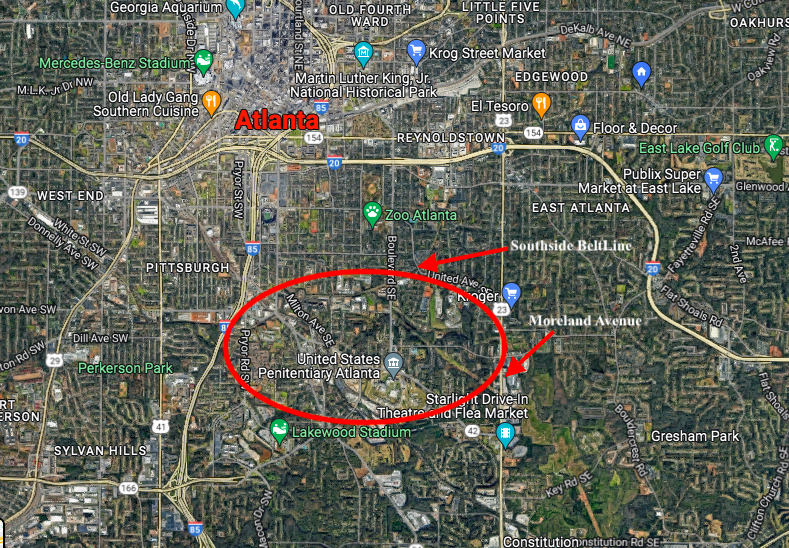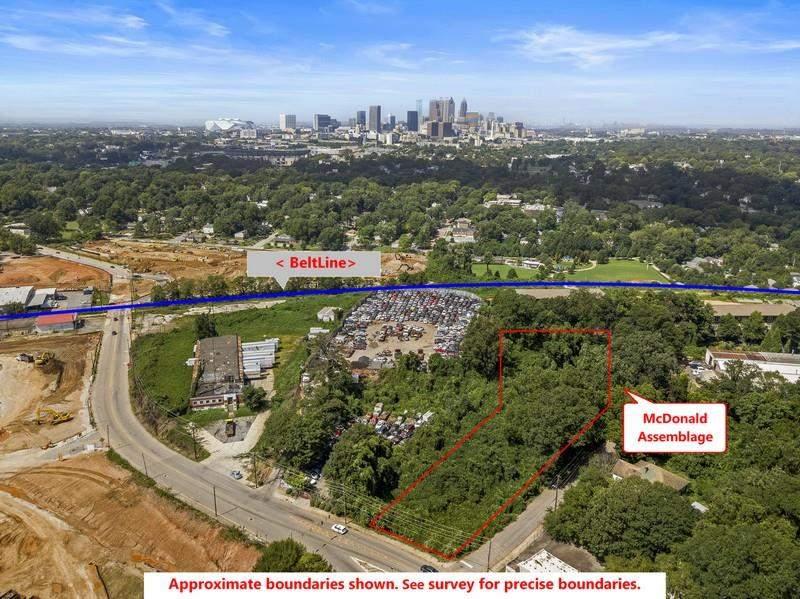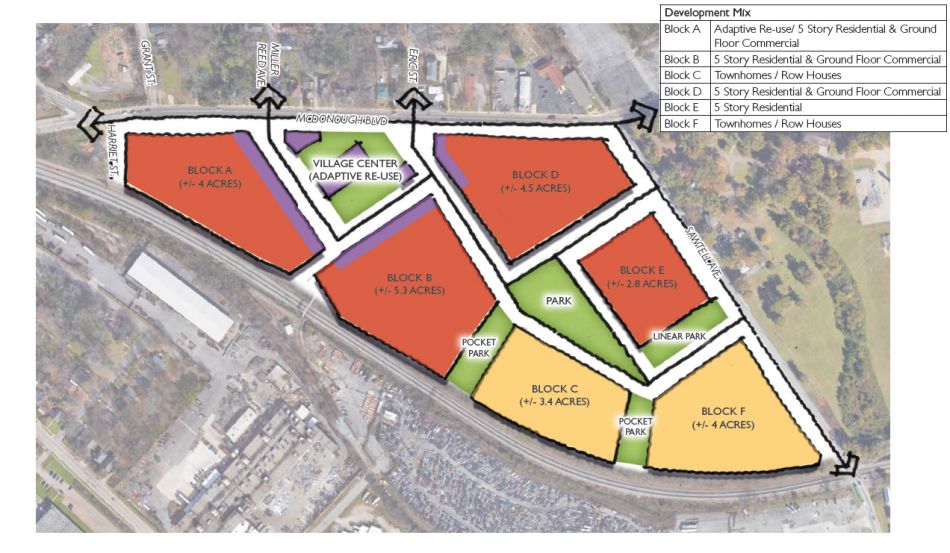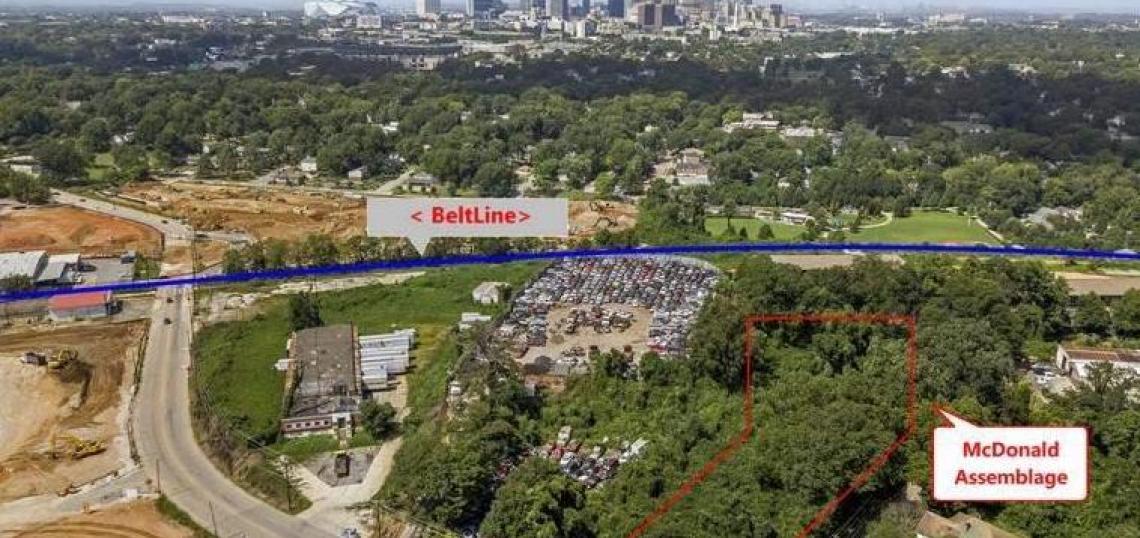An astute Urbanize reader was recently thinking out loud, and doing a little “napkin math,” that provided serious food for thought. Like a smorgasbord of food, in fact.
Brad DiFiore, a managing director with Ailevon Pacific Aviation Consulting by day, bought his house back in 2006 in East Village Park, a 93-home community in Benteen Park, just south of Ormewood Park and Boulevard Heights.
DiFiore expected the relatively sparsely populated pocket of Atlanta to quickly transform. Then 2008 happened—the ominous pause button that was the Great Recession—and the area felt like an afterthought, at least in terms of outside investment. But the economy picked up. The paved BeltLine began marching down from the east, and over from the west. Prices across the city—from East Lake to West End—ballooned. A housing shortage took hold. And now DiFiore hardly recognizes the area.
“It seems like we’re cramming 16 years of development into two or three,” DiFiore says. “At this point, I can’t begin to keep track of how many projects are occurring within a mile of me. And that is the issue.”
DiFiore welcomes the growth, as most clear-headed homeowners would. His worry is that developers are so laser-focused on residential building right now, they’re neglecting to consider retail opportunities in an area that’s generally starving for it, with The Beacon warehouse redevelopment and Moreland Avenue corridor being exceptions.
Back to the math: Think of a slice of southside Atlanta that extends from the BeltLine’s Southside Trail and United Avenue, over to Moreland Avenue, down to the Lakewood area, and then west to the Interstate 75/85 Connector. That would encompasses places like Chosewood Park, Boulevard Heights, Benteen Park, and Lakewood Heights, among others.
 The general scope of the area in question, which has seen explosive developer interest in recent years. Google Maps
The general scope of the area in question, which has seen explosive developer interest in recent years. Google Maps
According to DiFiore’s calculations (and ours), roughly 6,000 residential units are in that area’s development pipeline, mostly apartments and townhomes. The majority are two or three-bedroom homes. Taking children into account, that could logically spell an influx of some 15,000 people.
For context, that’d be like the entire populations of Grant Park, Westview, and Cabbagetown uprooting and moving to the southside in the span of a few of years. With a vast amount of land left for redevelopment.
“Most of Atlanta knows nothing about this area,” says DiFiore. “I think people unfamiliar with the area [haven’t] grasped the scale of what’s happening down here.”
 The proposed development site in Chosewood Park in the context of ongoing projects along Milton Avenue, at left. Those include 435 housing units at RangeWater Real Estate's Maverick project. Courtesy of Ansley Real Estate
The proposed development site in Chosewood Park in the context of ongoing projects along Milton Avenue, at left. Those include 435 housing units at RangeWater Real Estate's Maverick project. Courtesy of Ansley Real Estate
What’s driving the demand? As the Atlanta Business Chronicle pointed out in a story this week, home prices in the general area, per FMLS data, are markedly more affordable than Atlanta overall: $305,000 median sale prices in April, versus $439,000 in the city at large.
Another factor is huge swaths of available land.
Major proposals include nearly 700 homes replacing a moribund shopping center on Moreland Avenue. Kaplan Residential is planning to erect a mini-city with some 2,000 residences, 150,000 square feet of commercial space, and a retail village across 40 industrial acres in Chosewood Park. Empire Zephyr, a townhome community, is coming together across 34 acres off Boulevard. And hundreds of apartments and townhomes have already materialized near the BeltLine corridor in anticipation of the Southside Trail being paved.
 Overview of uses planned a half-mile south of the BeltLine. The Chosewood Park industrial property on Sawtell Avenue will eventually see 2,000 homes—and much more—across 40 acres, the development team says.Courtesy of Origin Investments, Kaplan Residential
Overview of uses planned a half-mile south of the BeltLine. The Chosewood Park industrial property on Sawtell Avenue will eventually see 2,000 homes—and much more—across 40 acres, the development team says.Courtesy of Origin Investments, Kaplan Residential
DiFiore says he’s always viewed properties near Atlanta’s U.S. Penitentiary as the area’s “last frontier,” given the stigma of living near a prison, though he calls it a quiet neighbor, landmark building, and the ultimate conversation starter.
That area, too, is the site of a new home development that plans to keep on growing.
• Reader: Atlanta's Lakewood Heights is 'on the rise,' deserves more respect (Urbanize Atlanta)







